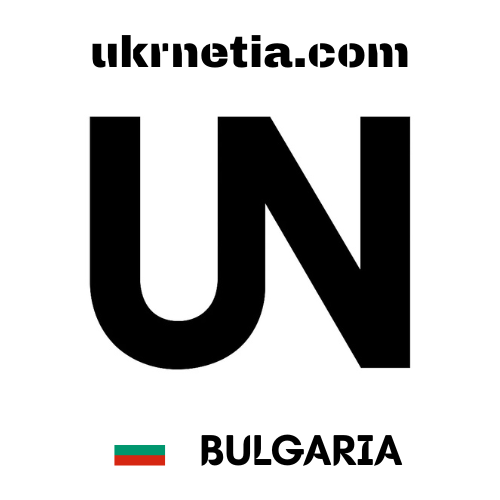Bulgaria’s Euro Adoption: A Historic Transition Set for January 2026

Bulgaria is preparing for one of the most significant economic transformations in its modern history: the full adoption of the euro on January 1, 2026. This momentous shift will mark the end of the Bulgarian lev and integrate the country fully into the eurozone, making it the 21st member state to embrace the common European currency. The transition represents not just a change of banknotes and coins, but a fundamental restructuring of Bulgaria’s monetary policy, economic framework, and its relationship with the European Union.
The Path to Euro Adoption
Bulgaria’s journey toward euro membership has been long and complex. The country joined the European Union in 2007, and since then, the adoption of the euro has been a stated policy goal. However, the path has been marked by delays, economic challenges, and the need to meet strict convergence criteria set by the EU.
The Bulgarian lev has been pegged to the euro (previously to the German mark) since 1997 through a currency board arrangement, maintaining a fixed exchange rate of 1.95583 leva to one euro. This system has provided monetary stability and helped control inflation following the severe economic crisis of the mid-1990s. In many ways, Bulgaria has functioned as a shadow member of the eurozone for decades, with its monetary policy effectively tied to the European Central Bank’s decisions.
The country’s formal application to join the eurozone’s waiting room, known as ERM II (Exchange Rate Mechanism II), was approved in July 2020. This was a crucial step, requiring Bulgaria to maintain exchange rate stability and demonstrate economic convergence with eurozone members for at least two years before adoption.
Economic Criteria and Preparations
To adopt the euro, Bulgaria must meet the Maastricht criteria, which include:
- Price stability: Inflation must not exceed 1.5 percentage points above the rate of the three best-performing EU member states
- Sound public finances: Government deficit must be below 3% of GDP, and public debt must be below 60% of GDP
- Exchange rate stability: The currency must remain within the normal fluctuation margins of ERM II for at least two years
- Long-term interest rates: Must not exceed 2 percentage points above the rates in the three best-performing member states in terms of price stability
Bulgaria has made considerable progress in meeting these criteria. The government has implemented fiscal reforms, strengthened banking supervision, and worked to combat corruption and money laundering—issues that previously raised concerns among eurozone members.
The technical preparations for the transition are extensive. Banks must update their systems, retailers need to prepare for dual pricing, ATMs must be reconfigured, and millions of citizens need to be educated about the new currency. The Bulgarian National Bank has been coordinating these efforts, working with financial institutions, businesses, and government agencies to ensure a smooth transition.
Expected Economic Impacts
The adoption of the euro will bring both opportunities and challenges for Bulgaria, one of the EU’s poorest member states with an average income significantly below the eurozone average.
Potential Benefits
Lower transaction costs: Eliminating currency exchange when trading with eurozone partners will reduce costs for businesses and tourists. Given that a significant portion of Bulgaria’s trade is with eurozone countries, this could boost economic efficiency.
Increased foreign investment: Euro adoption may enhance Bulgaria’s attractiveness to foreign investors by eliminating exchange rate risk and signaling economic stability and commitment to European integration.
Enhanced price transparency: With prices in euros, Bulgarian consumers and businesses can more easily compare costs across the eurozone, potentially increasing competition and efficiency.
Lower borrowing costs: Access to deeper, more liquid eurozone financial markets could reduce interest rates for government, businesses, and consumers.
Monetary credibility: Full eurozone membership reinforces the credibility of Bulgaria’s commitment to price stability and sound macroeconomic policies.
Potential Risks
Loss of monetary policy independence: Bulgaria will lose the theoretical ability to adjust its exchange rate or set its own interest rates in response to economic shocks, though this is largely moot given the existing currency board.
Adjustment challenges: The economy will need to adapt to eurozone-wide monetary policy, which may not always align perfectly with Bulgaria’s specific economic conditions.
Implementation costs: The physical transition—printing materials, updating systems, training staff—will require significant investment from both public and private sectors.
Will Living Costs Rise After Euro Adoption?
One of the most pressing concerns for ordinary Bulgarians is whether the transition to the euro will make daily life more expensive. This fear is not unfounded—several countries that previously adopted the euro experienced what economists call “perceived inflation,” where citizens felt that prices increased more than official statistics suggested.
The Psychology of Rounding
When prices are converted from leva to euros, there’s a significant risk of psychological rounding effects. With an exchange rate of approximately 1.96 leva to 1 euro, many prices will appear much smaller in numerical terms. For example, an item costing 10 leva becomes about 5.10 euros. However, retailers may be tempted to round up to “convenient” prices—in this case, perhaps 5.50 or even 5.99 euros—which would represent a real increase in cost.
This phenomenon occurred in several eurozone countries during their transitions. In Germany, the “teuro” (a portmanteau of “teuer,” meaning expensive, and “euro”) became a popular term reflecting public perception that the euro had made everything more costly, particularly for small, everyday purchases like coffee, bread, or public transportation.
Sectors Most Vulnerable to Price Increases
Services and hospitality: Restaurants, cafes, hairdressers, and other service providers often use the currency transition as an opportunity to adjust prices upward. These sectors typically have more pricing flexibility and less transparent pricing structures.
Small retail: Corner shops and small retailers may round up prices more aggressively than large chain stores, which face greater public scrutiny and competitive pressure.
Real estate and rents: The property market may see psychological repricing, with landlords and sellers using the transition to adjust prices that had remained sticky in leva terms.
Factors That May Limit Price Increases
Competitive pressure: Bulgaria’s retail sector includes major international chains that will face reputational risks if they’re seen as exploiting the currency change. Competition should help keep prices in check.
Government monitoring: Bulgarian authorities are likely to implement price monitoring mechanisms during the transition period. Many countries that adopted the euro established task forces to track pricing and prevent abuse.
Dual pricing period: Regulations typically require retailers to display prices in both currencies for several months, making abrupt price increases more visible and politically sensitive.
Public awareness: Widespread media coverage and public education campaigns about the correct conversion rate will help consumers identify unjustified price increases.
Economic fundamentals: Unlike some previous euro adopters, Bulgaria already has a fixed exchange rate, so there’s no currency conversion uncertainty for businesses planning their pricing strategies.
The Likely Outcome
Realistic assessment: Bulgaria will probably experience some price increases during the euro transition, but the effect is likely to be moderate and concentrated in specific sectors rather than across the entire economy. Official inflation may rise by 0.5-1.5 percentage points during the transition year, while perceived inflation—what citizens actually feel—could be higher.
Comparative experiences: Countries like Slovakia (2009) and the Baltic states (Estonia 2011, Latvia 2014, Lithuania 2015) provide useful benchmarks. These countries saw modest actual inflation during their transitions, with perceived inflation being notably higher. However, none experienced the dramatic price surges that characterized some earlier eurozone entries.
Long-term perspective: Any initial price shock should be temporary. Within 1-2 years after adoption, pricing should stabilize, and the benefits of eurozone membership—including increased competition and economic integration—may exert downward pressure on prices.
Social and Political Dimensions
Public opinion on euro adoption in Bulgaria has been mixed. While business leaders and economists generally support the move, many ordinary citizens harbor concerns about rising prices and loss of national monetary sovereignty. The government faces the challenge of managing these concerns while maintaining momentum toward the 2026 target date.
The success of the transition will depend heavily on effective communication and education. Citizens need to understand the conversion rate, how to identify fair pricing, and what to do if they suspect price manipulation. The government and civil society organizations will need to mount comprehensive public awareness campaigns.
Regional and European Implications
Bulgaria’s euro adoption has significance beyond its borders. As a Balkan country, its successful integration into the eurozone could encourage other regional aspirants, including Romania, which has also expressed ambitions to join. Conversely, significant problems during Bulgaria’s transition could complicate the path for others.
For the eurozone itself, accepting Bulgaria—despite its relatively small economy—demonstrates the currency union’s continued attractiveness and viability, particularly important after the challenges of the Greek debt crisis and Brexit.
What to expect?
Bulgaria’s scheduled adoption of the euro on January 1, 2026, represents a historic milestone in the country’s European integration journey. While the technical preparations are complex and the economic implications multifaceted, the transition is likely to proceed successfully given the country’s long experience with a euro-pegged currency.
Regarding living costs, Bulgarian citizens should prepare for some price increases, particularly in services and small retail, but these are unlikely to be as dramatic as public fears might suggest. The key factors will be competitive pressure, government vigilance, and public awareness. The currency board system has already created euro-like stability, so the transition represents more of a formal acknowledgment of existing economic reality than a revolutionary change.
In the long term, euro adoption should enhance Bulgaria’s economic prospects by deepening its integration with European markets, attracting investment, and reducing transaction costs. The initial transition period will be challenging, requiring careful management and clear communication, but Bulgaria’s path toward fuller European economic integration appears well-established and likely to yield net benefits for the country and its citizens.
The success of this transition will depend not just on technical preparations and economic policies, but on maintaining public trust and ensuring that the benefits of eurozone membership are broadly shared across Bulgarian society.










